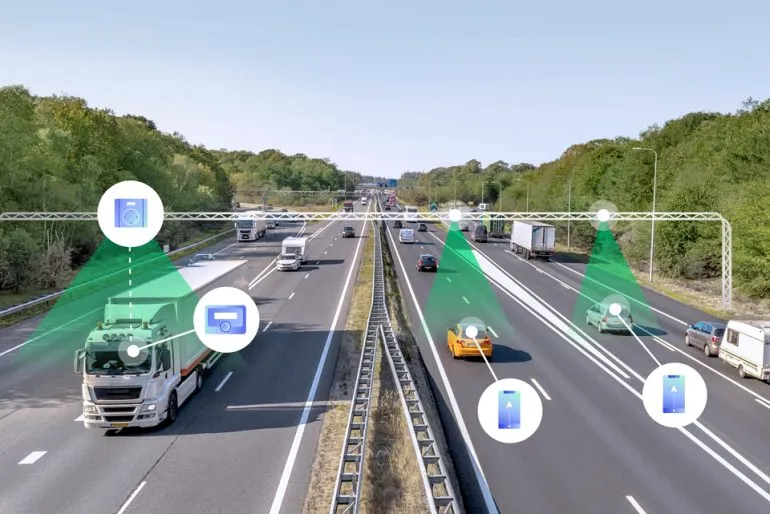Startups Helping Tackle Loneliness and Overwork in Modern Society
Inspired by Anushka Bhardwaj‘s article in Business Standard titled “Startups Tackle Loneliness with Services for Friendships and Companionship.”
In today’s fast-paced world, both loneliness and overwork are becoming significant problems that affect people’s mental and physical health. Startups are playing a crucial role in addressing these challenges by creating innovative solutions that help individuals strike a balance between work and social life while fostering meaningful connections. However, to truly tackle these issues, societies must focus on creating supportive environments that promote well-being and emotional resilience, and startups must continue evolving to overcome their limitations.
Introduction
In modern society, two major problems are growing: loneliness and overwork. As people focus on building their careers, they often sacrifice their social lives and relationships, which results in increased loneliness. This not only affects mental health but also takes a toll on physical health. Japan, for example, shows how extreme work cultures can lead to conditions like karoshi, which means “death from overwork.” At the same time, loneliness is spreading quickly in cities where people struggle to find meaningful connections. However, there is hope. Startups, which are small and innovative companies, are coming up with creative ways to help people combat loneliness and deal with overwork. By using technology and organising events, these companies help individuals connect with others and find balance. In this essay, we explore how startups are addressing both loneliness and overwork, while also acknowledging the limitations they face.
The Problem of Overwork
Overwork is a serious issue faced by many people worldwide. As workplaces become more competitive, employees often work longer hours in an attempt to succeed. In countries like Japan, where long working hours are common, the consequences of overwork can be severe, including heart failure and mental exhaustion. This is known as karoshi, which shows just how dangerous overwork can be.
When people work too much, they experience prolonged stress, which harms their ability to make good decisions. Many feel anxious, depressed, and disconnected from others. This stress also makes it difficult for people to build and maintain personal relationships, increasing their sense of isolation. As a result, overworked individuals are often caught in a cycle where they feel they have no time for friends or family.
In many work cultures, overwork is still seen as a sign of dedication and success. Employees who leave the office early may feel judged by their coworkers or bosses, which discourages them from taking time for themselves. This kind of thinking makes it harder for people to balance their work and personal lives, leading to even more isolation and loneliness.
The Growing Epidemic of Loneliness
Loneliness is a growing problem that affects people of all ages and backgrounds. Despite living in crowded cities, many individuals feel isolated because they lack close, meaningful relationships. According to studies, one in four adults worldwide regularly experiences loneliness. This can harm a person’s mental health, leading to conditions such as depression and anxiety. Moreover, loneliness is linked to physical health issues like heart disease, weakened immune systems, and even shorter lifespans.
In urban areas, where people often move away from their families for education or work, forming deep relationships becomes difficult. The fast-paced lifestyle in cities means people have little time to nurture close bonds with others. Even when surrounded by others, many feel lonely because they do not have the emotional support they need.
The elderly are particularly vulnerable to loneliness. As their children move away or after the death of a spouse, many older adults find themselves living alone without regular social interactions. This isolation can lead to feelings of disconnection from the world, further worsening their mental and physical health.
Startups Helping to Fight Loneliness
To address the growing problem of loneliness, startups are offering innovative solutions that help people connect with others. Traditional ways of meeting new people, like community events or family gatherings, are becoming less common, especially in cities. Startups are filling this gap by creating opportunities for people to make friends, find companions, and feel less lonely.
One effective way startups are helping is by organising social events where people with shared interests can come together. For instance, companies like Oopar host meetups for activities such as book clubs, group dinners, or outdoor adventures. These events allow people to step away from their screens and build real-life relationships. Face-to-face interactions are essential in forming deep, meaningful connections, which are harder to achieve through social media.
For those looking for romantic relationships, startups like Floh offer a different approach to dating. Instead of using traditional online dating platforms, Floh arranges small-group events where singles can meet naturally and build connections over shared experiences. These events create a comfortable environment that encourages people to interact in a more relaxed and meaningful way.
One of the most important contributions from startups is their work in helping the elderly combat loneliness. Companies like Goodfellows match younger companions with older adults, offering companionship and reducing isolation. This intergenerational bond not only benefits the elderly, who gain social interaction, but also provides younger people with valuable life lessons and wisdom from their older companions.
Using Technology to Build Connections:
Technology plays a significant role in the fight against loneliness. While social media can sometimes make people feel more isolated, startups are finding positive ways to use technology to bring people together. Apps like Panion help people find friends who share similar hobbies and interests, making it easier for them to form genuine connections based on common passions.
Another interesting development in the battle against loneliness is the use of artificial intelligence (AI). Some startups are creating digital companions for individuals who may not have regular social interactions. ElliQ, an AI-powered robot, helps elderly people by engaging them in conversation, telling jokes, and reminding them to stay healthy through exercise. While these digital companions cannot replace human relationships, they provide comfort and reduce loneliness for those who are physically isolated.
Technology is also helping people stay connected across long distances. Video calling apps and social media platforms allow people to maintain relationships with family and friends, even when they live far away. Although these digital connections may not be as fulfilling as face-to-face meetings, they offer a way for people to keep in touch when physical distance makes in-person interactions difficult.
Addressing Overwork and Loneliness Through Startups
In addition to helping fight loneliness, startups are also finding ways to address the problem of overwork. By promoting healthier work environments and encouraging a balance between work and personal life, these startups aim to reduce stress and prevent burnout. For example, some companies offer platforms where workers can find jobs with flexible hours or remote work options, giving employees more control over their schedules. This allows them to spend more time with family and friends, reducing feelings of isolation.
Moreover, many startups are organising wellness programs that encourage people to take care of their mental and emotional health. These programs might include activities like mindfulness meditation, yoga, or therapy sessions, which help individuals manage stress and stay connected to their emotions. By providing these services, startups are creating environments where people can prioritise their well-being without sacrificing their careers.
Limitations of Startups in Tackling Loneliness
Despite the progress made by startups in addressing loneliness and overwork, there are still some limitations to their efforts. One of the main challenges is their reliance on technology. While technology is a powerful tool for connecting people, it can also create barriers for those who are not comfortable using it, such as the elderly or those in low-income communities. These individuals may not have access to smartphones or the internet, limiting the effectiveness of digital solutions.
Another issue is the difficulty in building trust among users. When meeting new friends or attending events organised by startups, people may worry about safety and security. Startups need to invest time and resources in creating trustworthy environments, but this can be challenging, especially for smaller companies. Some people, particularly those who are vulnerable or anxious about socialising, may feel hesitant to use these services.
Startups also face challenges in addressing the deeper emotional aspects of loneliness. While attending events or using apps can help people meet others, it does not always solve the root causes of loneliness. Many individuals who experience chronic loneliness suffer from underlying mental health issues like depression or anxiety. Startups may not have the resources or expertise to provide the professional mental health support needed for long-term recovery.
As startups grow, they also face the risk of losing the personal touch that makes their services special. Small companies often begin by hosting intimate events where everyone gets to know each other, but as they expand, these gatherings can become larger and less personal. This shift may reduce the effectiveness of their solutions, as people who are struggling with loneliness often need deep, meaningful connections that are harder to form in bigger groups.
Lastly, startups must work to overcome the stigma associated with loneliness. In many cultures, people may feel embarrassed to admit that they are lonely or that they need help making friends. Startups need to create a culture where seeking companionship is normalised and accepted, but this takes time and effort.
A Multifaceted Approach for a Better Future
To effectively tackle the problems of overwork and loneliness, society must adopt a multifaceted approach. This includes changing workplace cultures to promote work-life balance and supporting initiatives that encourage people to build strong social bonds. Startups and innovative technologies play a key role in providing opportunities for connection, but individuals and workplaces must also contribute to fostering a supportive community.
Conclusion:
In conclusion, startups are helping address the growing challenges of overwork and loneliness in modern society. Their creative solutions, from organising social events to using technology for companionship, are making it easier for people to connect with others and find balance in their lives. However, there are still limitations that must be addressed, such as building trust, overcoming the stigma of loneliness, and ensuring inclusivity. By continuing to innovate and working alongside mental health professionals, startups can make a meaningful impact on creating a healthier, more connected world for future generations.




